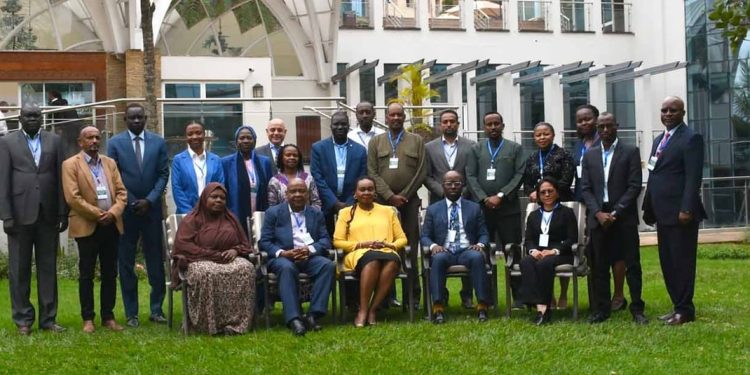African Development Bank, AU Commission Launch Continental Food Safety Initiative
The African Development Bank and the African Union Commission (AUC) have recently launched the Strengthening Food Safety Standards and Nutrition in Africa (SFNA) project, a crucial initiative to bolster food security, public health, and trade across the continent.
The project, launched at a workshop held 26-29 August, in Nairobi, Kenya, directly addresses an urgent challenge: the high burden of foodborne diseases in Africa, which according to the World Health Organisation, cause an estimated 137,000 deaths and 91 million illnesses annually.
In his keynote address, César Mba Abogo, the Bank’s Joint Secretariat Support Office Director, underscored the project’s strategic importance and its alignment with the Bank’s High 5 priorities. “This project is not just an investment, but a declaration of the Bank’s unwavering commitment to build resilient food systems from farm to fork, and to improve the quality of life for every African.”
In alignment with the Bank’s Ten-Year Strategy 2024-2033 and the African Union’s Agenda 2063 strategy and other AUC flagship programmes, the SFNA project integrates cross-cutting priorities into nutrition, including gender equality and resilience.
Dr. Janet Edeme, AUC Acting Head of Agriculture and Food Security, emphasised the importance of access to safe food and nutrition as a basic human right and integral to realising Agenda 2063. “Vulnerable populations, including children, pregnant women, older adults, and the immunocompromised, are most impacted,” she emphasized. “Therefore, collectively through the One Health approach, we must lay the foundations for resilient food systems and healthier communities across Africa.”
Financed by an African Development Fund grant of $8.57 million, the project is structured around three key components: harmonising food safety standards and enhancing laboratory capacity, promoting a food safety, gender, and nutrition culture and ensuring effective project management to deliver results with transparency and efficiency. It will focus on 10 countries: Cameroon, Chad, Madagascar, Mali, Mauritania, Mozambique, Senegal, Somalia, South Sudan, and Tanzania.
The four-day workshop equipped the project implementation team with the necessary tools and guidance on the Bank’s fiduciary and procurement procedures. Participating member countries presented their initial work plans and budgets, focusing on priority areas such as strengthening laboratory capacities, developing evidence-based food safety investment plans, and addressing specific challenges including aflatoxin contamination.
“This project embodies a collaborative and coordinated approach, leveraging the collective strength of African institutions to foster regional resilience and accelerate socio-economic transformation – marking a significant step toward a safer, healthier Africa,” Mba Abogo said.








